-
class sklearn.pipeline.Pipeline(steps)[source] -
Pipeline of transforms with a final estimator.
Sequentially apply a list of transforms and a final estimator. Intermediate steps of the pipeline must be ?transforms?, that is, they must implement fit and transform methods. The final estimator only needs to implement fit.
The purpose of the pipeline is to assemble several steps that can be cross-validated together while setting different parameters. For this, it enables setting parameters of the various steps using their names and the parameter name separated by a ?__?, as in the example below. A step?s estimator may be replaced entirely by setting the parameter with its name to another estimator, or a transformer removed by setting to None.
Read more in the User Guide.
Parameters: steps : list
List of (name, transform) tuples (implementing fit/transform) that are chained, in the order in which they are chained, with the last object an estimator.
Attributes: named_steps : dict
Read-only attribute to access any step parameter by user given name. Keys are step names and values are steps parameters.
Examples
>>> from sklearn import svm >>> from sklearn.datasets import samples_generator >>> from sklearn.feature_selection import SelectKBest >>> from sklearn.feature_selection import f_regression >>> from sklearn.pipeline import Pipeline >>> # generate some data to play with >>> X, y = samples_generator.make_classification( ... n_informative=5, n_redundant=0, random_state=42) >>> # ANOVA SVM-C >>> anova_filter = SelectKBest(f_regression, k=5) >>> clf = svm.SVC(kernel='linear') >>> anova_svm = Pipeline([('anova', anova_filter), ('svc', clf)]) >>> # You can set the parameters using the names issued >>> # For instance, fit using a k of 10 in the SelectKBest >>> # and a parameter 'C' of the svm >>> anova_svm.set_params(anova__k=10, svc__C=.1).fit(X, y) ... Pipeline(steps=[...]) >>> prediction = anova_svm.predict(X) >>> anova_svm.score(X, y) 0.829... >>> # getting the selected features chosen by anova_filter >>> anova_svm.named_steps['anova'].get_support() ... array([False, False, True, True, False, False, True, True, False, True, False, True, True, False, True, False, True, True, False, False], dtype=bool)Methods
decision_function(\*args, \*\*kwargs)Apply transforms, and decision_function of the final estimator fit(X[, y])Fit the model fit_predict(\*args, \*\*kwargs)Applies fit_predict of last step in pipeline after transforms. fit_transform(X[, y])Fit the model and transform with the final estimator get_params([deep])Get parameters for this estimator. predict(\*args, \*\*kwargs)Apply transforms to the data, and predict with the final estimator predict_log_proba(\*args, \*\*kwargs)Apply transforms, and predict_log_proba of the final estimator predict_proba(\*args, \*\*kwargs)Apply transforms, and predict_proba of the final estimator score(\*args, \*\*kwargs)Apply transforms, and score with the final estimator set_params(\*\*kwargs)Set the parameters of this estimator. -
__init__(steps)[source]
-
decision_function(*args, **kwargs)[source] -
Apply transforms, and decision_function of the final estimator
Parameters: X : iterable
Data to predict on. Must fulfill input requirements of first step of the pipeline.
Returns: y_score : array-like, shape = [n_samples, n_classes]
-
fit(X, y=None, **fit_params)[source] -
Fit the model
Fit all the transforms one after the other and transform the data, then fit the transformed data using the final estimator.
Parameters: X : iterable
Training data. Must fulfill input requirements of first step of the pipeline.
y : iterable, default=None
Training targets. Must fulfill label requirements for all steps of the pipeline.
**fit_params : dict of string -> object
Parameters passed to the
fitmethod of each step, where each parameter name is prefixed such that parameterpfor stepshas keys__p.Returns: self : Pipeline
This estimator
-
fit_predict(*args, **kwargs)[source] -
Applies fit_predict of last step in pipeline after transforms.
Applies fit_transforms of a pipeline to the data, followed by the fit_predict method of the final estimator in the pipeline. Valid only if the final estimator implements fit_predict.
Parameters: X : iterable
Training data. Must fulfill input requirements of first step of the pipeline.
y : iterable, default=None
Training targets. Must fulfill label requirements for all steps of the pipeline.
**fit_params : dict of string -> object
Parameters passed to the
fitmethod of each step, where each parameter name is prefixed such that parameterpfor stepshas keys__p.Returns: y_pred : array-like
-
fit_transform(X, y=None, **fit_params)[source] -
Fit the model and transform with the final estimator
Fits all the transforms one after the other and transforms the data, then uses fit_transform on transformed data with the final estimator.
Parameters: X : iterable
Training data. Must fulfill input requirements of first step of the pipeline.
y : iterable, default=None
Training targets. Must fulfill label requirements for all steps of the pipeline.
**fit_params : dict of string -> object
Parameters passed to the
fitmethod of each step, where each parameter name is prefixed such that parameterpfor stepshas keys__p.Returns: Xt : array-like, shape = [n_samples, n_transformed_features]
Transformed samples
-
get_params(deep=True)[source] -
Get parameters for this estimator.
Parameters: deep: boolean, optional :
If True, will return the parameters for this estimator and contained subobjects that are estimators.
Returns: params : mapping of string to any
Parameter names mapped to their values.
-
inverse_transform -
Apply inverse transformations in reverse order
All estimators in the pipeline must support
inverse_transform.Parameters: Xt : array-like, shape = [n_samples, n_transformed_features]
Data samples, where
n_samplesis the number of samples andn_featuresis the number of features. Must fulfill input requirements of last step of pipeline?sinverse_transformmethod.Returns: Xt : array-like, shape = [n_samples, n_features]
-
predict(*args, **kwargs)[source] -
Apply transforms to the data, and predict with the final estimator
Parameters: X : iterable
Data to predict on. Must fulfill input requirements of first step of the pipeline.
Returns: y_pred : array-like
-
predict_log_proba(*args, **kwargs)[source] -
Apply transforms, and predict_log_proba of the final estimator
Parameters: X : iterable
Data to predict on. Must fulfill input requirements of first step of the pipeline.
Returns: y_score : array-like, shape = [n_samples, n_classes]
-
predict_proba(*args, **kwargs)[source] -
Apply transforms, and predict_proba of the final estimator
Parameters: X : iterable
Data to predict on. Must fulfill input requirements of first step of the pipeline.
Returns: y_proba : array-like, shape = [n_samples, n_classes]
-
score(*args, **kwargs)[source] -
Apply transforms, and score with the final estimator
Parameters: X : iterable
Data to predict on. Must fulfill input requirements of first step of the pipeline.
y : iterable, default=None
Targets used for scoring. Must fulfill label requirements for all steps of the pipeline.
Returns: score : float
-
set_params(**kwargs)[source] -
Set the parameters of this estimator.
Valid parameter keys can be listed with
get_params().Returns: self :
-
transform -
Apply transforms, and transform with the final estimator
This also works where final estimator is
None: all prior transformations are applied.Parameters: X : iterable
Data to transform. Must fulfill input requirements of first step of the pipeline.
Returns: Xt : array-like, shape = [n_samples, n_transformed_features]
-
pipeline.Pipeline()
Examples using
2025-01-10 15:47:30



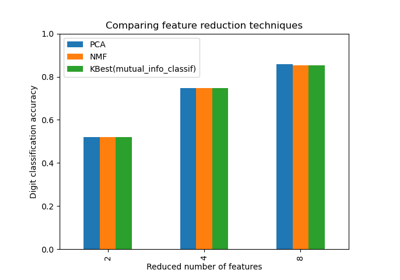
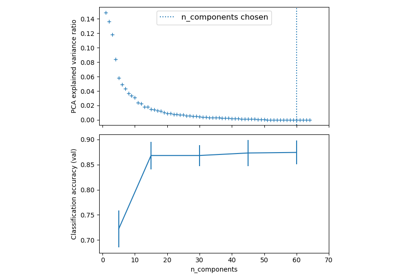
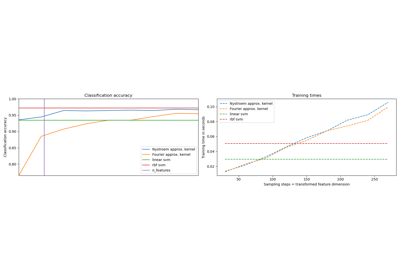
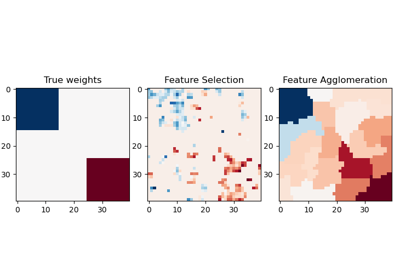

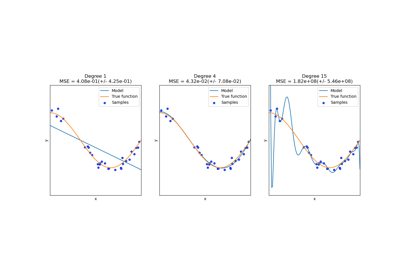
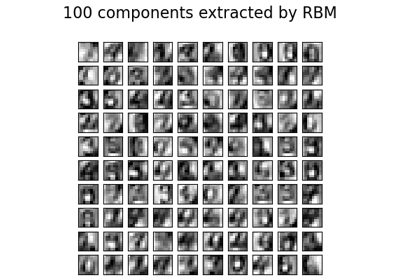
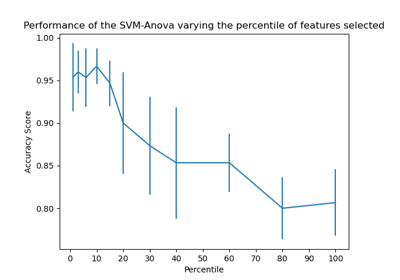

Please login to continue.